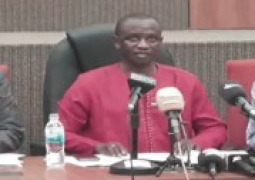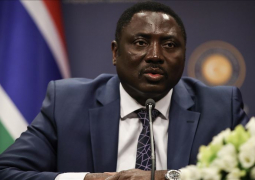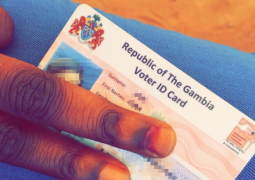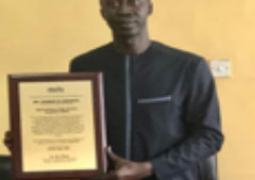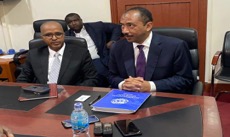
The team is currently in the country conducting a mission for the fifth review of the programme supported by the Extended Credit Facility from September 21 through October 4 2022. The team presents the conclusion of the mission as well as updates on the macroeconomic situation of The Gambia.
He told journalists that “we’re analysing the evaluation of the economy for the next half year and assist the programme we signed with the government to be implemented for the next year.”
In terms of the evaluation of the economy, he explained that they saw that the country’s economic activities are recovering following the pandemic, adding that the recovery is not as strong as they expect it.
The IMF Mission Chief said that this is mainly due to the implications of the war in Ukraine. He confirmed that they have seen the number of arriving tourists increasing, the construction and agriculture sector continuing to be strong.
On inflation, he explained that it’s accelerating and the main reason for that is the prices of good. Due to the war in Ukraine, he added, that food and fuel are on the increase.
“In terms of policies going forward, we agreed on the 2022 fiscal target and parameters for the 2023 project. We also agreed on policies regarding the foreign exchange with the Central Bank but also policies regarding the structure of the funds.”
On IMF support to The Gambia in order to curb inflation, Mr. Razafimahefa stated that they discussed this closely with the Central Bank while saying that they analysed the different components of inflation and advised policies based on the data analysis of those components.
“The main driving of accelerating inflation is external from outside the country, primarily from the high global fuel and food prices. What we need to do is to try and create policies to address those pressures.”
He said one of those policies is to use the monetary policy tool, which is the policy rate. He added that they support the decision by the Central Bank to increase the policy rate by 1% point 8 in May and in September.
“The second point is that we are working together with the government to reduce the tax collection on food products sold in the country and that was done for the last few months. We are providing two disbursements for this year of about US$7 million each. The first phase was disbursed already and we plan to disburse another $7 million toward the end of the year if all the discussions are completed positively.”
Read Other Articles In Headlines
